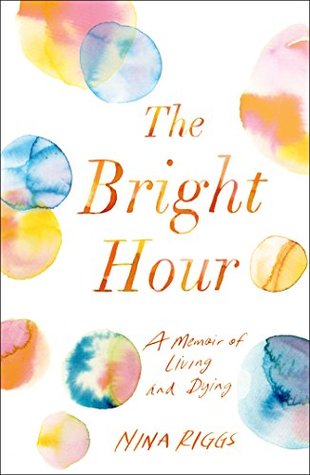More on this book
Community
Kindle Notes & Highlights
There is a striking sketch from the late 1830s by transcendentalist artist and writer Christopher Pearse Cranch that was made to illustrate the concept of the “transparent eye-ball” in Ralph Waldo Emerson’s essay Nature. Emerson felt that nature was the closest we can get to experiencing God, and he believed that in order to truly appreciate nature, you must not only look at it and admire it, but also be able to feel it taking over the senses. The transparent eyeball absorbs—rather than reflects—what it perceives: Standing on the bare ground,—my head bathed by the blithe air, and uplifted into
...more
Emerson rolling in his grave: Steroids and chemo are the closest I get to God.
But what he is working toward in his difficult exploration is unquestionably beautiful: how to distill what matters most to each of us in life in order to navigate our way toward the edge of it in a meaningful and satisfying way. Unlike the rest of the planet, my mom’s mind isn’t blown. “This is what I’ve been saying all along,” she says. “You just haven’t been ready to listen.” One of the things Dr. Gawande probes in his book is how to figure out what makes a person’s life worth living in order to make the most sensible choices as the end of life approaches. One man in the book says he is
...more
I keep thinking about my painting teacher in Florence—a watercolor class in a timeless glass ceilinged studio on the Via dell’Alloro. “You must promise to only follow this advice in watercolor—not in anything else in your life—well, maybe cooking,” she told us. “Intensify slowly. Use lots of water, and lay down a wash of color. Walk away, let the pigment move and bleed and dry on the paper. Then return to it with a slightly deeper hue, again and again until you think you are satisfied. Whatever you do, don’t rush it. The best parts happen when you have stepped away.”
In his essay Nature, Emerson says, “Who looks upon a river in a meditative hour, and is not reminded of the flux of all things?” With solitude and a rainstorm: All is changed. My parents did not bring me up in a church-going tradition. But nature is church, my great-great-great grandfather believed—and I was raised to go into the woods. “[Nature] always speaks of Spirit. It suggests the absolute. It is a perpetual effect. It is a great shadow pointing always to the sun behind us. . . . The happiest man is he who learns from nature the lesson of worship.” He taught his children to go into the
...more
I am reminded of an image that one of my cousins—a woman who lost her husband to a swift and brutal cancer last year—suggested to me recently over email: that living with a terminal disease is like walking on a tightrope over an insanely scary abyss. But that living without disease is also like walking on a tightrope over an insanely scary abyss, only with some fog or cloud cover obscuring the depths a bit more—sometimes the wind blowing it off a little, sometimes a nice dense cover.


